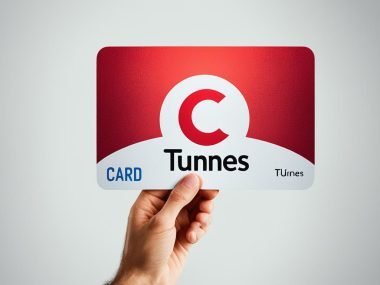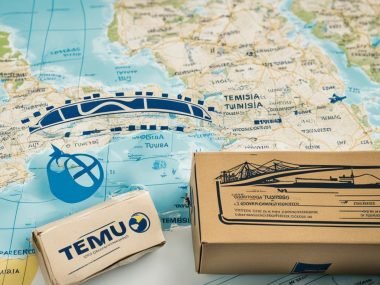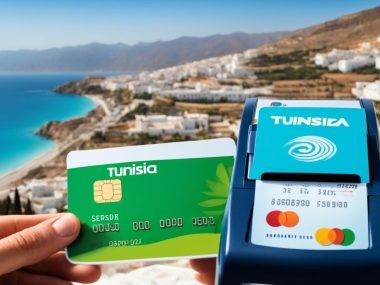Amid the bustling markets and aromatic aisles of Tunisian souks, a question often lingers in the minds of travelers: Can I Spend Euros In Tunisia? While the Tunisian Dinar reigns as the official currency, the European influence is palpable, prompting many to wonder if their euros will be just as welcome. Before you pack your wallets with Tunisia travel money euros, take note: while you can bring your pounds, euros, or dollars for exchange, spending euros directly on Tunisian soil is not a customary practice due to legal constraints. Moreover, the Tunisian Dinar cannot legally cross borders either way: it’s a currency strictly for the confines of this North African escape.
Upon arrival, visitors may exchange their foreign currency, including euros, for the local Dinar at various authorized establishments. It’s worth noting that while most hotels can offer cash points and exchanges, the use of euros in daily transactions remains restricted. Keeping your currency in Tunisia euros-ready may provide peace of mind, but the conversion to Dinars is an essential step in the preparation for your Tunisian adventure.
Key Takeaways
- The Tunisian Dinar (TND) is the sole legal tender in Tunisia, necessitating currency conversion upon arrival.
- Multinational currencies such as pounds, euros, or dollars can be brought into Tunisia, yet cannot be used for direct daily spending.
- Carrying euros might offer you some leniency in certain upscale establishments, but converting to Dinars remains the standard norm.
- While ATMs and exchange services are commonly found in hotels, counting on such amenities for currency needs is a travel must.
- Be mindful of the legal prohibition against the import and export of Tunisian Dinar, which underscores the importance of exchanging only what you need.
Understanding Tunisia’s Currency Regulations
When planning your travel to Tunisia, being cognizant of the local currency laws ensures a smooth experience. As a visitor, you’ll be dealing with the Tunisian Dinar, and understanding how to handle foreign currency in Tunisia is essential. Adhering to these rules is not only a matter of following local customs but also observing national regulations which can have legal consequences if breached.
Importing Foreign Currency into Tunisia
When you arrive in Tunisia, you’ll notice that the importation of the country’s own currency, the Tunisian Dinar, is not permissible. Conversely, you are welcome to bring with you other forms of foreign currency, such as the euro. While entry with the euro is permitted, certain stipulations apply, especially with regards to amounts that necessitate declaring money in Tunisia. It’s a straightforward process, but one that you should approach with diligence to ensure compliance with local laws.
Declaring Money at Customs
Custom declarations form a critical part of entering Tunisia. Upon arrival, should you be carrying more than the equivalent of TND 10,000 in foreign currency like the euro or USD, declaration is a requirement. This is crucial, particularly when it’s time to leave the country; if you plan to exit Tunisia with more than TND 5,000 in currency—having perhaps engaged in some money exchange Tunisia euro transactions during your stay—declaring this sum at customs is mandatory.
Below is a table summarizing the essential facts about currency regulation for visitors to Tunisia:
| Requirement | Amount in TND | Equivalent in Foreign Currency | Action Required |
|---|---|---|---|
| Carrying money into Tunisia | 10,000+ | Varies by exchange rate | Declaration at customs |
| Leaving Tunisia with money | 5,000+ | Varies by exchange rate | Declaration must have been made upon entry |
Now that you’re informed about the currency regulations in Tunisia, you can plan your financial matters accordingly for a seamless travel experience. Remember, understanding and complying with these rules is not only about adhering to the law but also about ensuring your visit goes as smoothly as possible, without any unintended monetary issues.
The Tunisian Dinar: Legal Tender in Tunisia
When you’re planning a trip to Tunisia, it’s essential to understand the monetary system to avoid any inconvenience during your stay. In Tunisia, the official currency that is universally accepted for all forms of financial dealings is the Tunisian Dinar (TND). This means that if you’re considering using euros in Tunisia or carrying any currency in Tunisia euros to spend across the country, you’ll find that you must exchange them to Tunisian Dinars first.
While you might be accustomed to using euros abroad in various European countries, the situation in Tunisia is quite different due to legal stipulations. All economic transactions must take place using the local currency, as per Tunisian financial regulations. Consequently, spending euros directly as a form of payment is not officially sanctioned.
For travelers coming from regions where the euro is the standard currency, it is crucial to plan your currency exchange ahead. Knowing that the TND is the sole legal tender can spare you the potential hassle of trying to complete transactions in euros, only to realize they are not accepted.
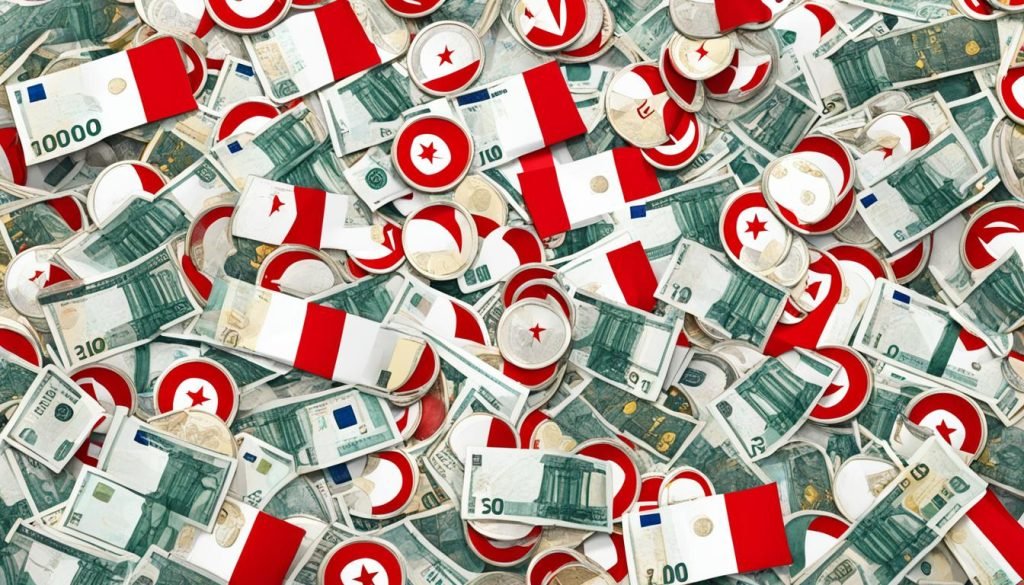
If you find yourself questioning the possibility of using euros abroad while visiting Tunisia, consider this: though the euro is a strong and widely recognized currency, it does not have legal tender status outside of the Eurozone, Tunisia included. To ensure a smooth financial experience in Tunisia, exchanging euros to Tunisian Dinars upon arrival or at established foreign exchange services is a prudent step.
In summary, your journey to Tunisia, with its rich cultural heritage and stunning Mediterranean coastline, will be more enjoyable when you’re well-prepared to navigate through the nuances of its currency regulations. Carrying euros as a backup is wise, but remember, the currency that keeps Tunisia’s markets bustling is the Tunisian Dinar.
Can I Spend Euros In Tunisia?
Visitors often wonder about spending euro in Tunisia and whether euros are widely accepted across the country. It’s important to note that while the Tunisian Dinar is the official currency, there are certain venues where having euros may be to your advantage.
Using Euros in Shops and Hotels
When considering using euros in Tunisia, the reality is that most local shops and merchants operate exclusively with the local Tunisian Dinar. Therefore, it’s advisable to exchange your euros for the local currency to avoid any inconvenience. However, in some prestige hotels and luxury resorts, the euro might find its way into transactions with relatively less friction due to the international clientele these establishments serve.
Places Where Spending Euros is Possible
If you’re still pondering, “Can I spend Euros In Tunisia?”, then it’s useful to know the specific areas where this might be possible. Below is a table that outlines potential venues where spending euros could be more likely accepted or facilitated, although these instances are exceptions rather than the rule.
| Type of Establishment | Euro Acceptance Likelihood | Additional Information |
|---|---|---|
| Luxury Hotels and Resorts | High | May have currency exchange desks |
| Major Tourist Attractions | Medium | Convenience for tourists sometimes accommodate euros |
| Large Shopping Centers | Low to Medium | Some stores might accept, but Dinar is preferred |
| Local Shops and Markets | Very Low | Euros rarely accepted; local currency is essential |
| Restaurants and Cafes | Low | Dinar is the standard but some touristic spots may accept euros |
As a traveler, it’s essential to prepare for all monetary situations. Although some establishments may accept the euro, ensuring you have a sufficient amount of Tunisian Dinar will make your commerce experience smoother and more enjoyable.
When preparing for your journey to Tunisia, consider these insights to ensure you’re equipped financially to explore this beautiful country without any spending hurdles.
Exchanging Euros for Tunisian Dinar
When you’re visiting Tunisia, having the local currency—the Tunisian Dinar—is essential for a smooth experience. Fortunately, exchanging euros in Tunisia is a straightforward process, available at a variety of convenient locations.
Currency Exchange at Hotels and Banks
Most major hotels and banks offer services for euro to Tunisian dinar exchange. It’s often as simple as walking into the lobby and finding the currency exchange counter. Banks, while providing more competitive rates, might have more stringent operating hours. To ensure you’re never caught without cash, plan your exchanges accordingly.
Receipts and their Importance in Currency Exchange
Keeping a tight grip on your exchange receipts is crucial when exchanging euros in Tunisia. Should you have leftover Dinars at the end of your trip, these receipts will be your ticket to convert the currency back. It’s important to note that re-exchange transactions typically require bank receipts; ATM receipts won’t suffice.
| Euro to Tunisian Dinar Exchange | Locations | Receipt Required for Re-exchange |
|---|---|---|
| Banks | Major cities and towns | Yes |
| Hotels | Lobby areas or designated exchange offices | Yes |
| Other | Currency exchange bureaus in tourist areas | Yes |
By keeping this information in hand, you’ll navigate the monetary aspects of your Tunisia visit with ease. Whether it’s for haggling at the market or paying for services—the knowledge of exchanging euros in Tunisia will serve you well.
ATMs and Card Usage in Tunisia
As you plan your journey to Tunisia, understanding the conveniences of monetary transactions can significantly ease your experience. ATMs in Tunisia are rather accessible, especially in major cities and tourist destinations. These machines provide a straightforward option for visitors who might wonder about using euros in Tunisia. You’ll find that ATMs linked with major banks like the Bank of Tunisia and BIAT are ready to serve your needs, accepting international Visa cards and, often, Maestro cards too.
Despite the prevalence of ATMs, carrying some local currency can be advantageous due to occasional technical disruptions. Connectivity issues, while not the norm, can occur, potentially hindering real-time transactions. To circumvent such inconveniences, it’s wise to withdraw cash in Tunisian Dinars when the opportunity presents itself, thus ensuring undisrupted payment for goods and services during your stay.
For in-store transactions or settling bills at your chosen accommodations, more venues are now amenable to international credit and debit cards, particularly those issued in the UK. However, take heed that while this trend is growing, it’s not absolute; the reliability of card usage is sometimes challenged by technical glitches. In essence, while using euros in Tunisia may not be directly possible, the combination of withdrawal facilities at ATMs in Tunisia and the burgeoning acceptance of cards at service points collectively aid in creating a tourist-friendly fiscal environment.
Your financial ease is a component of the travel experience Tunisia strives to offer. Should you encounter any uncertainties regarding currency, reach out to local banking institutions or your concierge – assistance is continually at hand to ensure a seamless and enjoyable visit.
Using Debit and Credit Cards in Tunisia
As you traverse the vibrant markets and historic sites of Tunisia, you might ponder over the practicality of debit card usage in Tunisia and making credit card purchases in Tunisia. It’s essential to be aware of the quirks of the financial infrastructure in this beautiful North African country. While digital transactions are gaining ground, various issues can arise, leading to a reliance on cash in many situations.
Connectivity Issues During Transactions
Despite the convenience debit and credit cards offer, you may frequently encounter connectivity issues that disrupt smooth transactions. This predicament is not rare in Tunisia, as many establishments, especially in less urbanized regions, may feature dated technology or have unreliable internet connections, which can interrupt the payment process. Therefore, it’s wise to always carry some Tunisian Dinars to circumvent any unforeseen hiccups during your purchases.
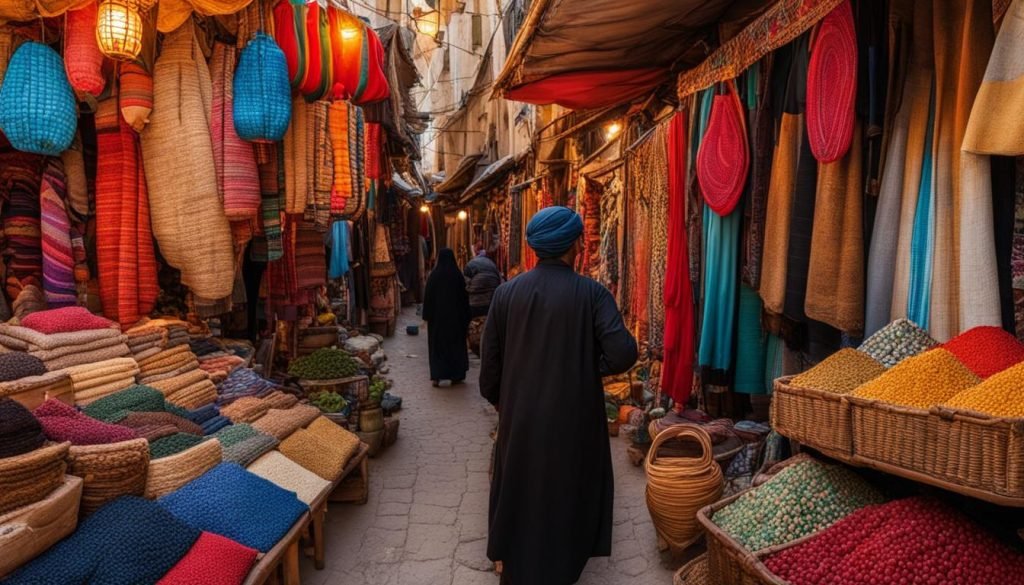
Authenticating Mastercard and Visa Purchases
When it comes to card acceptance, Visa and Maestro are commonly recognized for ATM withdrawals across Tunisia, providing a semblance of financial convenience for tourists. Nevertheless, Mastercard holders might face additional authorization challenges. While prevalence in the capital and other major cities is improving, it’s recommended to verify with merchants beforehand, ensuring that your card transactions will be successful. With these insights, your experience with debit card usage in Tunisia and credit card purchases in Tunisia should be considerably less stressful, letting you immerse yourself in the culture and splendor of your destination without monetary distractions.
Restrictions on Taking Tunisian Dinar Out of the Country
When you visit Tunisia, it’s important to familiarize yourself with the currency restrictions Tunisia has in place, specifically regarding the export of the Tunisian dinar. The laws governing currency movement are strict, and adherence to these regulations is crucial to avoid potential complications.
Understanding the limits and requirements set by the Tunisian authorities can save you from facing unexpected legal issues at the end of your visit. One key point to remember is the legality surrounding re-exchanging Tunisian dinar before you leave the country.
Re-exchanging Tunisian Dinar upon Departure
Tunisia’s foreign currency management is stringent, and as a traveler, you’re only permitted to re-exchange up to TND 3,000 back into your foreign currency of choice upon departure. To do this, you must show the original exchange receipt as proof of your initial currency exchange transaction. This ensures that the process is transparent and that the re-exchanged funds are within the legal limits.
Compliance with Local Laws
If you declared a higher amount of currency upon entering Tunisia—up to TND 5,000—you are allowed to re-export that amount, provided it was properly declared. Failing to comply with these currency restrictions Tunisia enforces can lead to difficulties with customs and potentially serious legal consequences, including fines or other sanctions.
For smooth travels and a stress-free return, always keep your currency exchange receipts and ensure you follow the guidelines for re-exchanging Tunisian dinar. Compliance with local laws is not only a matter of legal obligation but also a demonstration of respect for the national regulations of the country you are visiting.
Conclusion
As you plan your travels to Tunisia, it’s essential to understand that handling your finances with Tunisia travel money euros may not align with the everyday economic practices within the country. Adopting a flexible approach toward currency exchange will serve you well, since spending euros directly is often not an option. To navigate the financial landscape smoothly, arriving with euros and exchanging them for Tunisian Dinar is a reliable way to ensure that you have the accepted legal tender for your transactions.
While the accessibility of ATMs and the potential to use credit or debit cards introduces a layer of convenience, it’s advisable to always carry Tunisian Dinars to overcome any unforeseen challenges such as connectivity issues. When using euros abroad, particularly in Tunisia, adhering to the local currency regulations significantly reduces the risk of any legal snags and facilitates a stress-free exploration of the country’s rich culture and scenic beauty.
Ultimately, your readiness to operate within the established financial norms of Tunisia—by planning ahead for currency exchange and using local currency—will enable you to focus on the experiences that await you. Proper preparation regarding using euros abroad and understanding money exchange dynamics are keys to an enjoyable and trouble-free Tunisian adventure.



